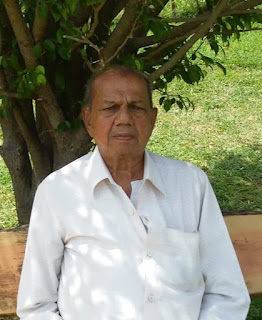In the lap of Himalayas!
Hey there! This is my 8th post on Uttarakhand and it's quite gratifying to see you all here, bonjour!
After writing about Kanatal, the most picturesque place I have ever visited, I thought I was done raving about Uttarakhand. But how wrong I was? It was just my short-term memory that made me believe so. As pointed out by my husband Abhijeet, there were still a few unique experiences that were worth sharing. The photos of some of the awe-inspiring sites, idly sitting in my phone's memory, refreshed my memory, and here I am ready to sketch the portrait of one more stunning place in Uttarakhnd, Auli.
Auli is also known as Auli bugyal, which means meadow in Garhwali. Primarily known as the skiing destination of India, tourists throng this place in winters. The skiing season was yet to start when we visited. But Auli found a place in our itinerary because of the unique stays that grabbed our attention during the exploration phase and the fact that it is hardly crowded during the off-season.
The journey from Kanatal to Auli was quite long. After leaving at around 7am we reached Auli at 5pm while taking only one major break for lunch. We checked in at Shivalik camps and resort and the place pleased us with delicious food, scenic views, well-mannered staff and memorable tent stay. These days, many camping sites provide tent stays suitable for a family. The tents are laid on top of a solid framework that protects the dwellers from the extreme weather and provides for a better security. This allows small kids to enjoy the experience without worrying about their health and safety.
The faraway mountains were getting closer, and closer as we traveled from Dehradun towards the Himalayan ranges. Our Auli stay brought us within an ace of them. Finding ourselves in the lap of the mountains made me feel like a pilgrimage, serendipitously ending into the darshan of a beloved deity. This beautiful abhanga (bhajan) written by Sant Dnyaneshwar resonated with my feelings when I saw the sight. Do listen to it, it's beautifully sung by India's nightingale, Bharat Ratna, late Lata Mangeshkar and composed by Pt. Hridaynath Mangeshkar.
अजि सोनियाचा दिनु | वर्षे अमृताचा घनु ॥
हरि पाहिला रे हरि पाहिला रे । सबाह्याभ्यंतरी अवघा व्यापक मुरारी ||
दृढ विटे मन मुळी । विराजित वनमाळी ॥
बरवा संतसमागमु । प्रगटला आत्मारामु ॥
कृपासिंधु करुणाकरू । बाप रखमादेविवरू ॥
 |
| Nanda Devi Peak |
 |
| Mt. Kamet (with it's peak blocked by the jealous clouds), pc: Abhijeet |
 |
| Brahmakamal Peak (middle) and Dunagiri Peak (on the right) |
The next day morning, nature had planned a new show for us. The clouds were kind enough to reveal the mountains which they had mischievously blocked the previous day. Let me show you the trailer.
Some important points to note when you visit Auli with kids or elderly people
Auli is a remote place and you won't find any shops or eateries easily. So, please carry enough food (dry snacks or fruits) and the other supplies with you. Otherwise, one has to travel to Joshimath (around 20-30 minutes travel) which is relatively bigger town down the hill.
As usual let me end the leaf of my diary with a thought:
I love to think of nature as an unlimited broadcasting station, through which God speaks to us every hour, if we will only tune in.
- George Washington Carver (Amarican agricultural scientist)



.jpeg)


Comments
Post a Comment